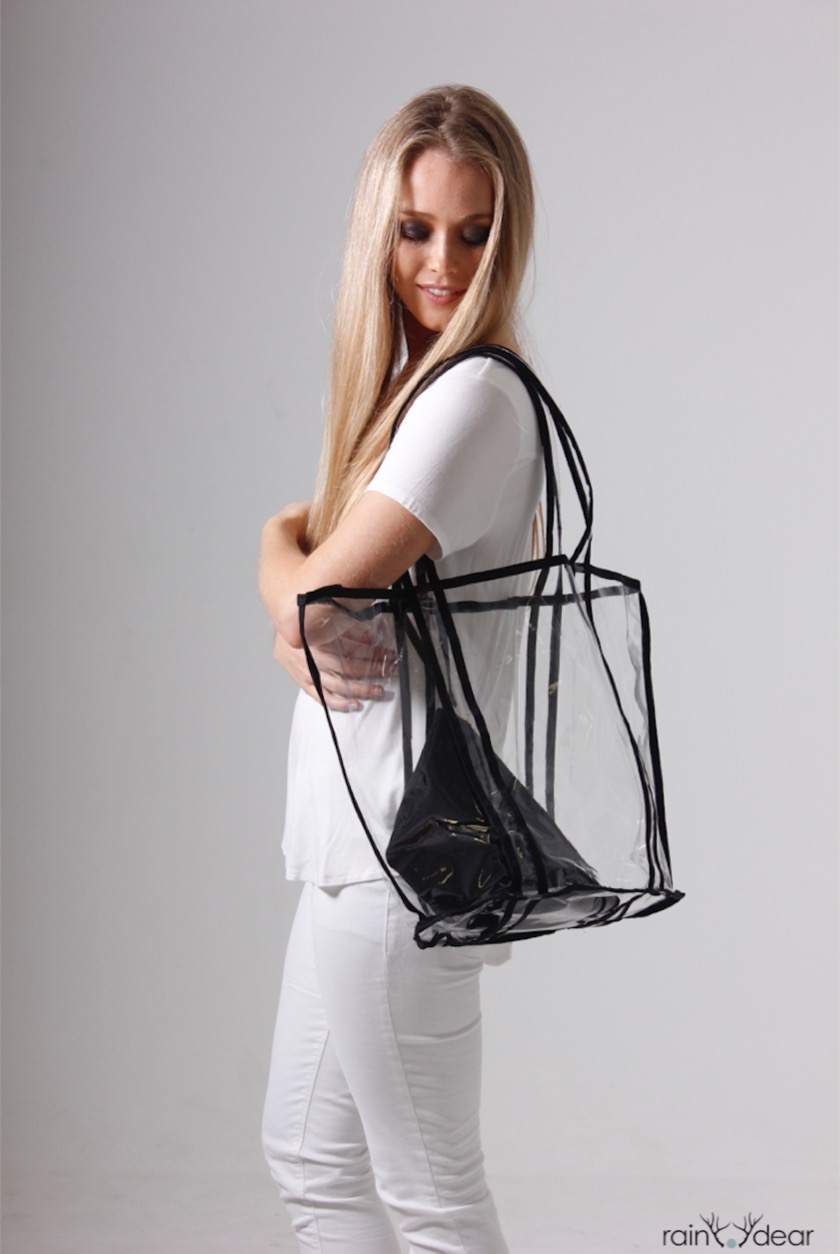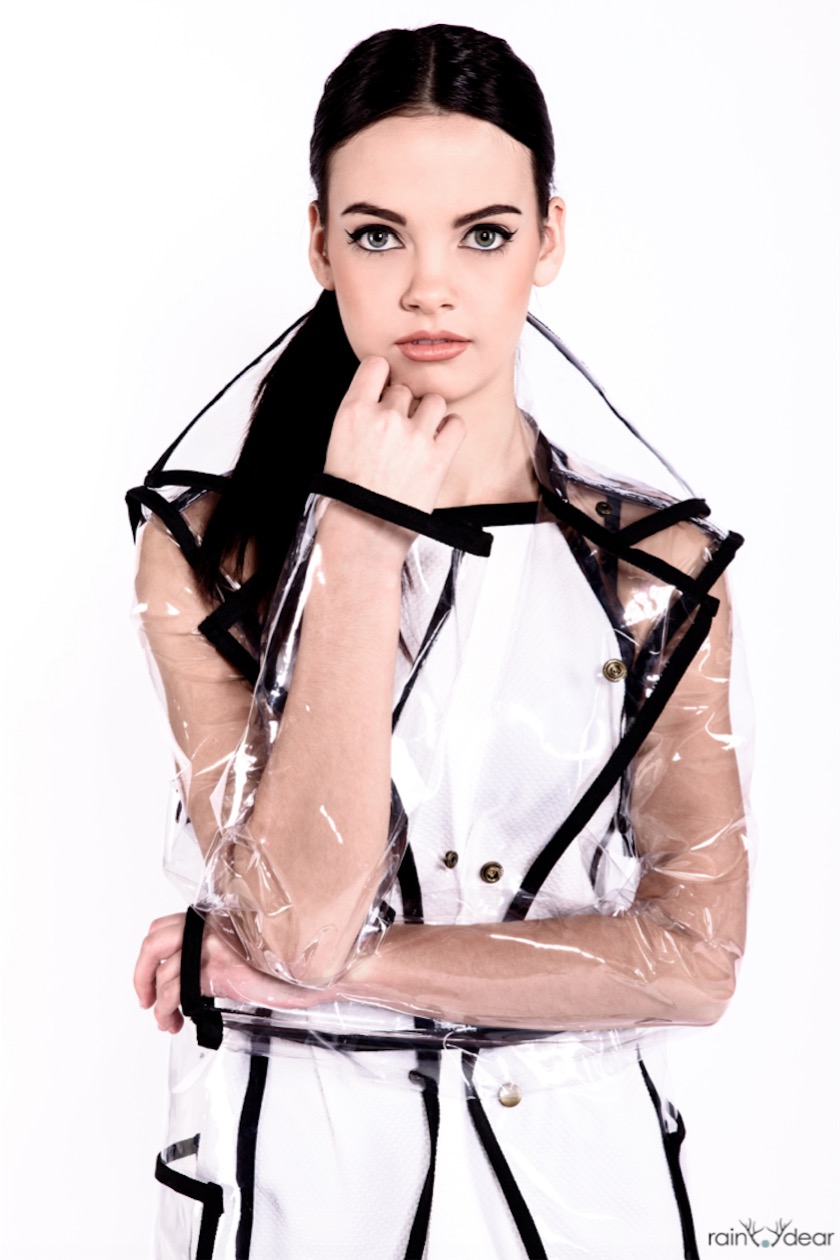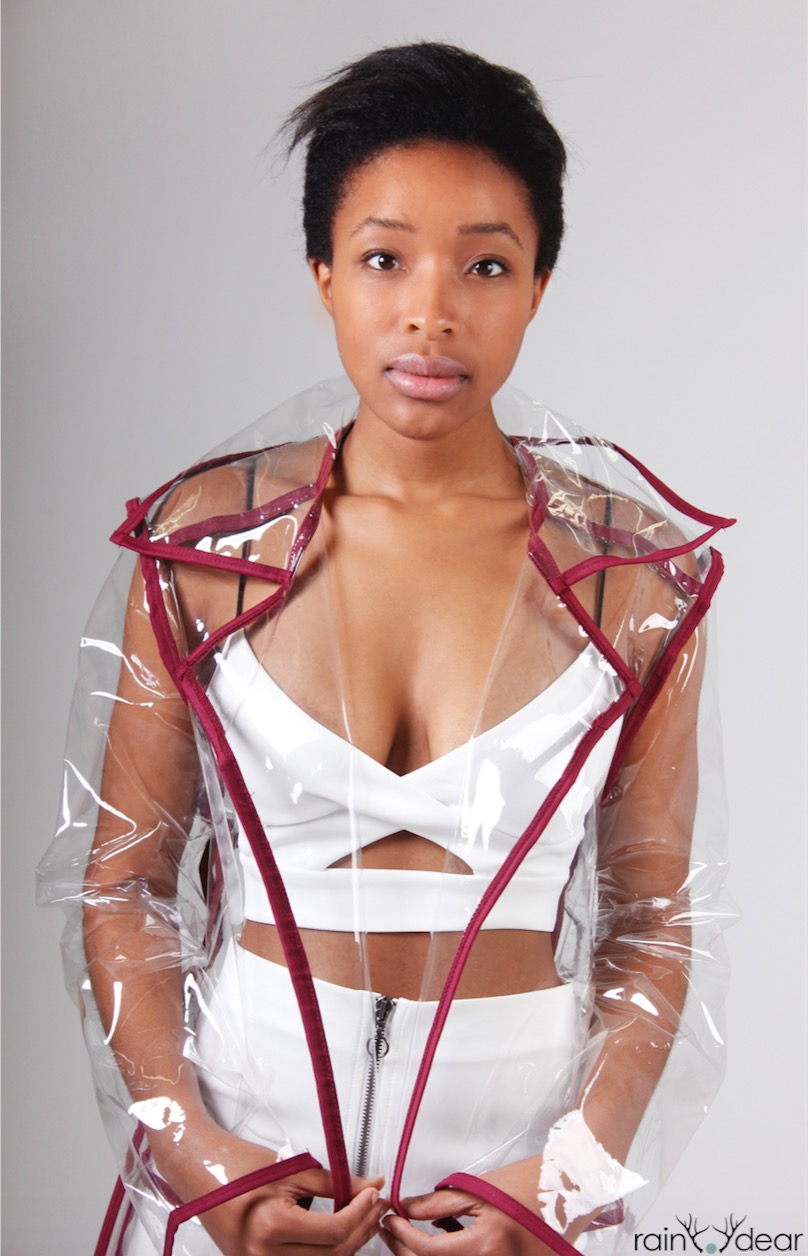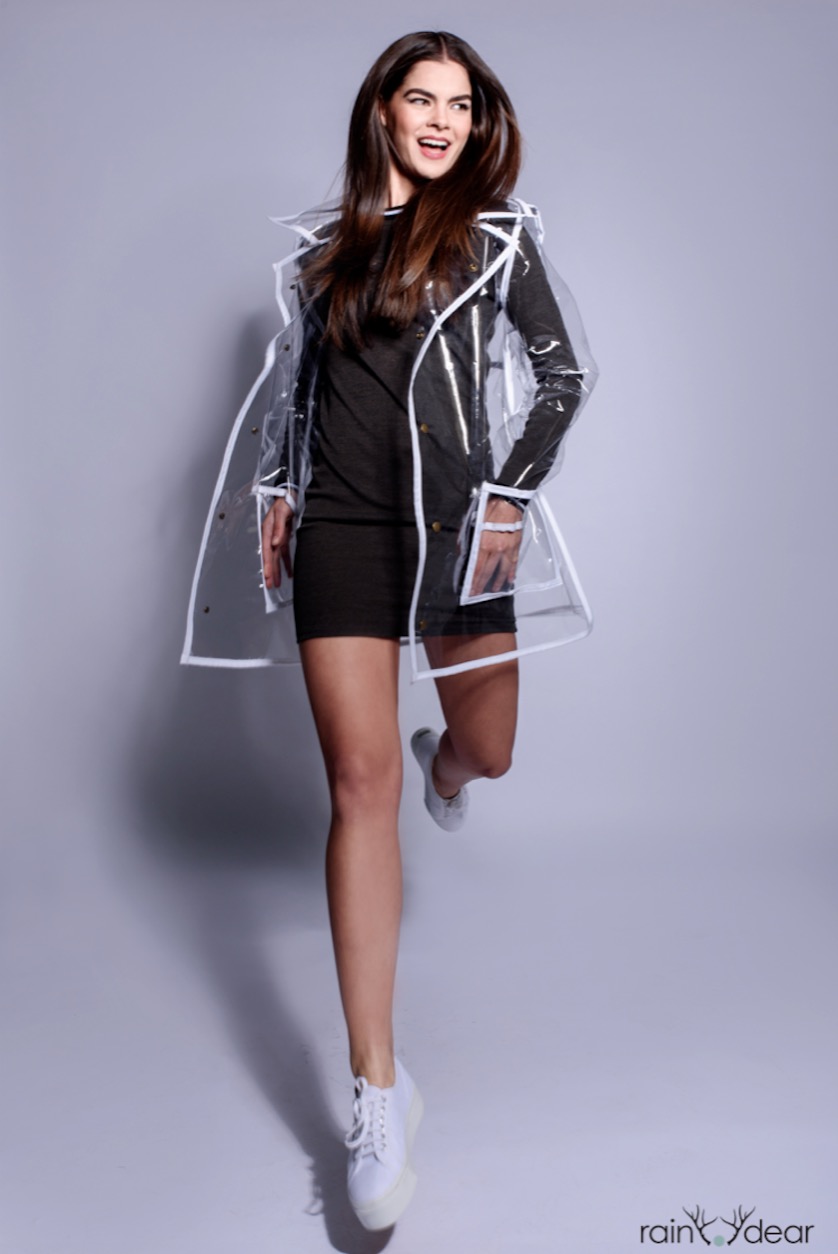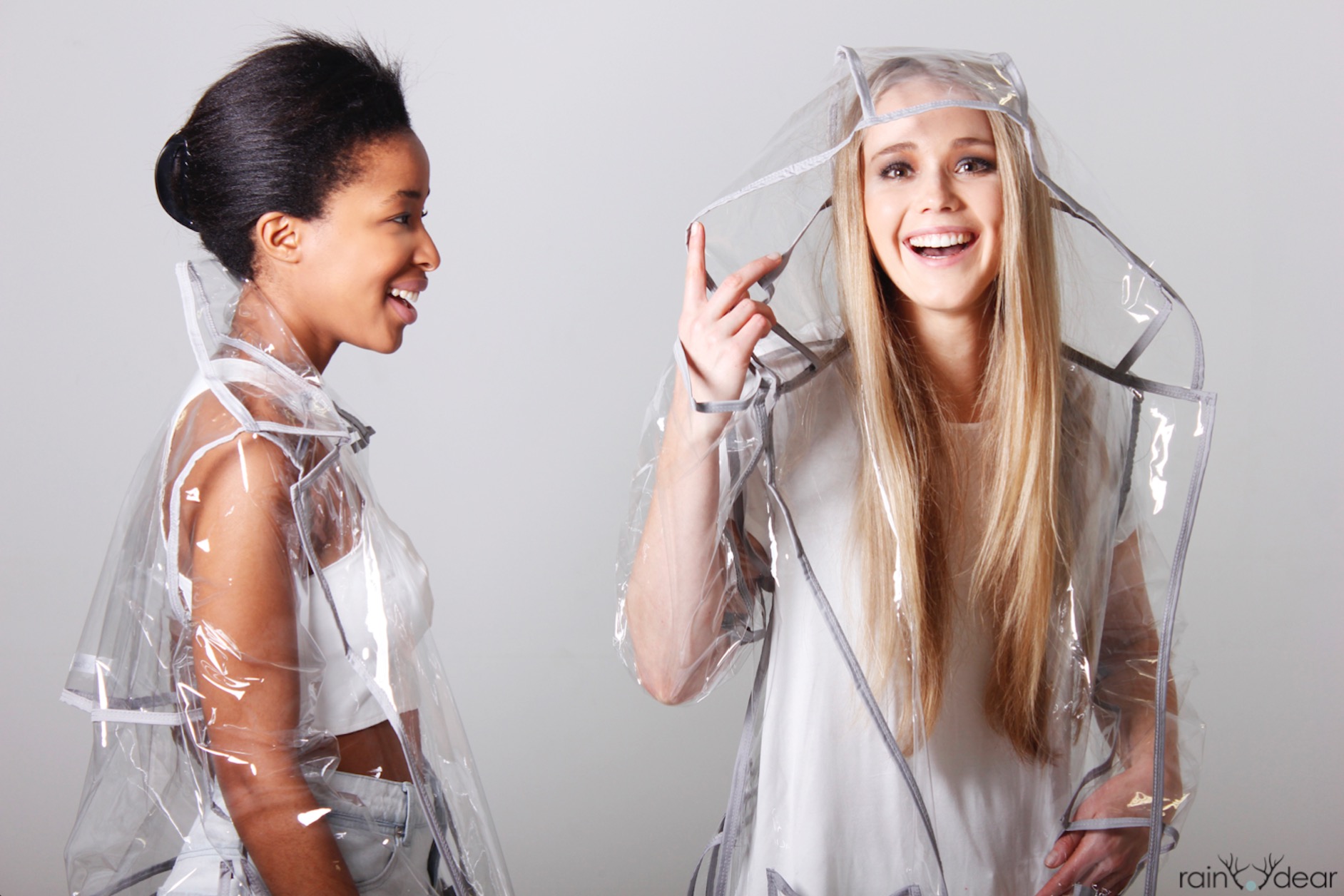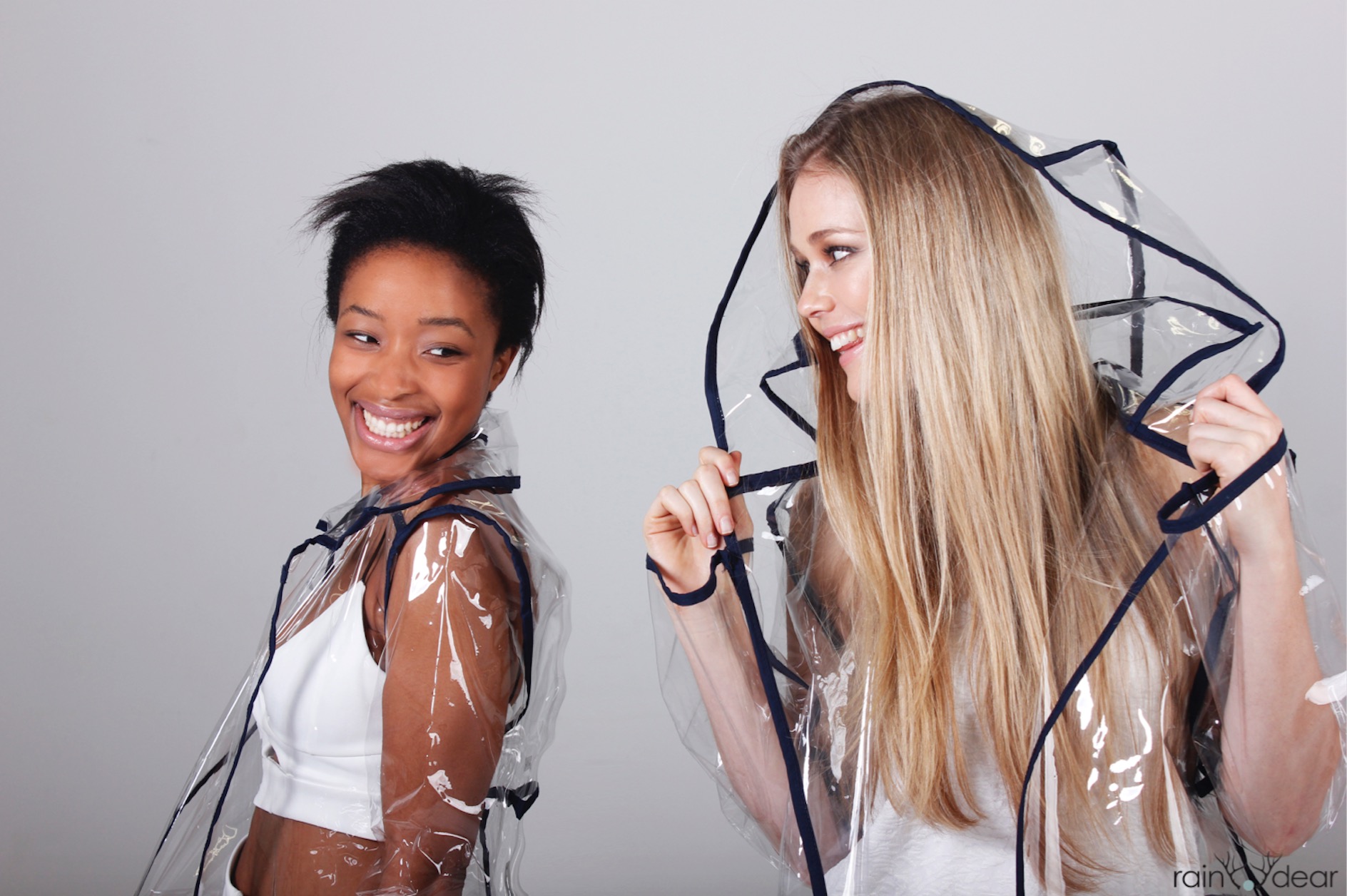How many times looking back in history have great companies and brands been created as a result of necessity. In the case of Mthuthukile Msibi and her company Rain Dear, she saw opportunity in Cape Town’s bad weather, creating a range of rainproof clothing and accessories that is winning fans at home and abroad.
LoA was keen to know more about this unique company and brand and where its origins came from.
What does your company do?
We manufacture and sell apparel made out of transparent PVC. We additionally started with raincoats, but have since expanded to handbags, laptop cases, and anywhere PVC can be applied to make the item weather resistant and fashionable.
"Rain Dear started out initially as a project on my postgraduate course on entrepreneurship amongst me and my 5 other colleagues."
What inspired you to start your company?
It started out as a project on my postgraduate course on entrepreneurship amongst me and my 5 other colleagues. When we started we were looking for a product that kept you dry, whilst at the same time providing resistance to strong winds. We were looking for a solution to Cape Town's weather, that people would be proud to wear. I then opted to continue with the project as I had a vision for the brand and what it could become. As a result, I then bought the rest of my colleagues out and proceeded to develop the product to incorporate more of an African muse. I realised that working with an unfamiliar material provided opportunity for a lot of innovation and experimentation with design, and I enjoyed the fact that it was a brand that provided an opportunity for training and employing lots of females.
Why should anyone use your service or product?
It enhances one's personal style and identity. Everyone can wear a Rain Dear item, yet no one person will look the same. It also provides a solution for areas that have damp weather combined with harsh winds - hence it's foundation in Cape Town. This especially applies to individuals where their attire or uniform is required to be visible in their work environment. Our product is also a reflection of both my and my employees journey. It's a piece of us we are happy to share with any individual who interacts with it. Each product shares a piece of our history, heritage and experiences of both a young and old African female, who have taken different paths to end up engulfed in the same destiny. Each product range, or item designed, brings forth a different element of our existence. It's a brand that we decided needed to deliver African stories to anyone who dares to listen.
"Everyone can wear a Rain Dear item, yet no one person will look the same. It also provides a solution for areas that have damp weather combined with harsh winds - hence it's foundation in Cape Town."
Tell us a little about your team
Currently I am the only owner, who manages those I work with. I only have one permanent member of staff. She's responsible for sewing the products and has an incredible flair for product development, as she thoroughly enjoys prototyping both her and my different ideas, to test just how far we can go with the plastic. She's originally from Congo, and speaks very little English - this initially made it almost impossible for her to get a job before she joined us. I recently employed a graphic design intern who works on both digital and non digital aspect of graphic design. He assists in portraying the visual aesthetic of the brand. He wasn't able to complete his college degree but uses his free time to work in personal design projects and maintains that he is eager to re-apply for his studies to perfect the technical side to his craft. He's a young 23 year old coloured boy from Ravensmead. If I need any additional service, I outsource.
Share a little about your entrepreneurial journey. And, do you come from an entrepreneurial background?
It's difficult to say where exactly my journey started, as there are many multifaceted aspects that built up to it. During all my vacation periods my mother had this unremitting commitment to ensuring that my brother and I spend most of our time gaining work experience. Although this was done with the intent of getting us comfortable with the work space, it made me aware that the traditional work structure was not where I would thrive. From hospitality, to finance, to regulation, under all forms of industry, did I realise that it was not the type of work that got to me, but the role and structure. When I graduated and went straight into my 6-month internship, I felt more than ever that I was wasting my youth! I was coming from a dynamic space as a student where I was given the freedom to make a meaningful contribution and join any course that resonated with my heart. I was part of an engaging space, where I was given freedom to immediately work on issues I felt needed to be attended to, without worrying about how it will affect my image and my job. Even with the salary, I felt that I could do a lot more and be a lot more productive when I wasn't being paid for my hours to be restricted in a specific space. I had pictured that after graduation I would be able to address the issues affecting uneducated youth and despondent females in poverty, and somehow work became the distraction. So when the opportunity came, I felt Rain Dear would be my opportunity to be introduced into the world of entrepreneurship. It became my outlet that allowed me to become in charge of my time, and became my protecter to ensure that I wouldn't get caught up in the comfort of something that didn't resonate with my heart. It became my catalyst for the foundation of whole chain of other enterprises.
"Rain Dear is a brand that we decided needed to deliver African stories to anyone who dares to listen."
What are your future plans and aspirations for your company?
Rain Dear needs to become the world leader in PVC wearables. Currently companies do make clothes containing PVC, but this is often one item included in a range. No one has chosen to specialise in it. We plan on pushing the boundaries with PVC as a material and it's role in fashion and design. In the process, our company will remain adamant in exporting uniquely African design to the world. We also aim to become the largest PVC recycler worldwide. We want to get to a point where we can receive customers’ old stock, recycle it in house and produce new merchandise. Once we are comfortable with the recycling process, we would then want to extend PVC recycling to all PVC plastic products.
What gives you the most satisfaction being an entrepreneur?
The freedom of the control of my time. When working I got paid for my hours, so even when I was done with work, I had to sit and 'look busy', or find a task to 'kill time.' I felt that in that time I could have been doing many other things that would be of a lot more value for myself. Being an entrepreneur has allowed me to engage with that - my work is not confined, its from the moment when I wake up to when I fall asleep. So instead of living in between 5 and 9, I am able to engage with activities that matter most, when I can.
I have always been a character that tries to shape the lives of those around me, so I find it so satisfying to be able to employ people. You not only give them their financial means, but you have the opportunity to help them develop their skill-set and character. The people that work for me, contribute so much more to the start-up than what's on their job description, so we are all able to be in an environment where we are all growing. In the past I felt helpless when people’s lack, of education, or general knowledge hindered their progress. I am privileged and choosing my spaces to operate in enables me to help empower others, as it has helped me.
"Rain Dear became my catalyst for the foundation of a whole chain of other enterprises."
What's the biggest piece of advice you can give to other women looking to start-up?
Do not wait for your product to be perfect in order to start. I would not have started if I perfected my product first, or I would have spent much of the start-up money prototyping. Get a minimum viable product first then get going so that you allow your customers to be the ones helping to continually improve the product. This applies to both a good product and a great service.
Also as the saying goes, fake it to make it. Men tend to project a lot more confidence and often this is what get's them further. If your customer is confident in your product, be just as confident if not slightly more. As the owner, if you're not able to assure them about your product, then how should they feel confident?
Contact or follow Rain Dear
FACEBOOK | TWITTER | INSTAGRAM | EMAIL mthuthu.msibi@gmail.com
Why LoA loves it….
At LoA, we love innovators, those women entrepreneurs who strive to create new things by taking inspiration from a raw material and then transforming that material into something new and interesting. For entrepreneur Mthuthukile Msibi, her inspiration came from a need to find an effective weather proof clothing solution in her particular environment, and for her, PVC was the answer. She is now making a name for herself and her company by creating wonderful products that are not only practical but also beautiful and unique. --- Melanie Hawken, founder and editor-in-chief of Lionesses of Africa



